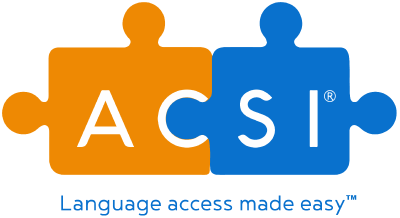Bilingualism is the ability to communicate in two languages with equal, or near equal, fluency. It is common for staff members to speak more than one language, and in some cases, their role may require them to do so. Employees who agree to communicate in both English and other languages are broadly called bilingual staff. It is critical for modern companies´ and organizations’ staff to reflect the communities they serve with people who come from different backgrounds, traditions, cultures, and realities. People are not always aware of how hard it can be to handle marginalization or exclusion due to a language barrier. Bilingualism can make a positive change not only in your organization but also in society. It promotes empathy, viewing a situation from another’s perspective, and thus fostering tolerance towards others. However, hiring the right bilingual staff and managing them is another story that requires key success points that we are eager to share with you.
As the number of people you serve becomes more diverse, your workplace should become more open and inclusive. The power of language lies in its ability to foster inclusion and bilingual staff can help you to make this possible, as long as they are not required to perform tasks outside their scope of work and expertise. An example of this is using bilingual staff to serve as translators or interpreters. As a rule, bilingual workers may assist in simple communication, but should not be relied on to interpret or translate complex, technical, or sensitive information.
For everyday communication, speaking and listening proficiency in a language other than English is not the same as having the ability to effectively manage dialogue between two people. Writing and reading proficiency in a language other than English for everyday documents is not the same as having the ability to effectively translate from one language to another. You would not ask a public servant to interpret complex, legal jargon or translate a doctor’s note that could potentially have dangerous consequences if not done correctly. Qualified, credentialed interpreters and translators fulfill these roles. Language proficiency tests are useful tools to determine if an employee is able to use their language skills to communicate efficiently and in which scenarios they perform best. These tests are designed to assess the ability a person has to use language in real-world situations.
In sum, organizations can benefit greatly from staff who speak different languages. These benefits include being able to widen participation, practice inclusivity, enrich culture and network with national and international partners. Most importantly, bilingual staff is the bridge across the language gap that ensure everyone has access to their rights and needs. However, it is key to first assess them with a proficiency test to better understand how capable they are of performing in another language. Remember, avoid using bilingual staff as translators and/or interpreters because this requires a different set of skills, and there is more room for critical mistakes.
Call ACSI to assess your bilingual staff proficiency and learn how to manage your resources to scale your language access plan!

